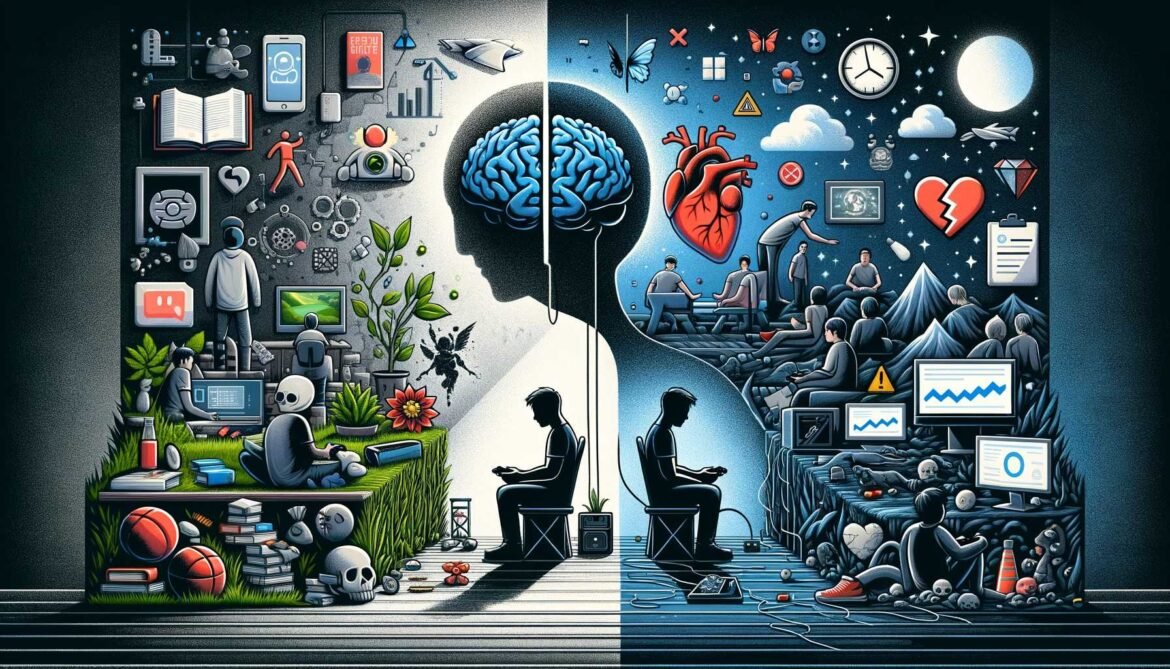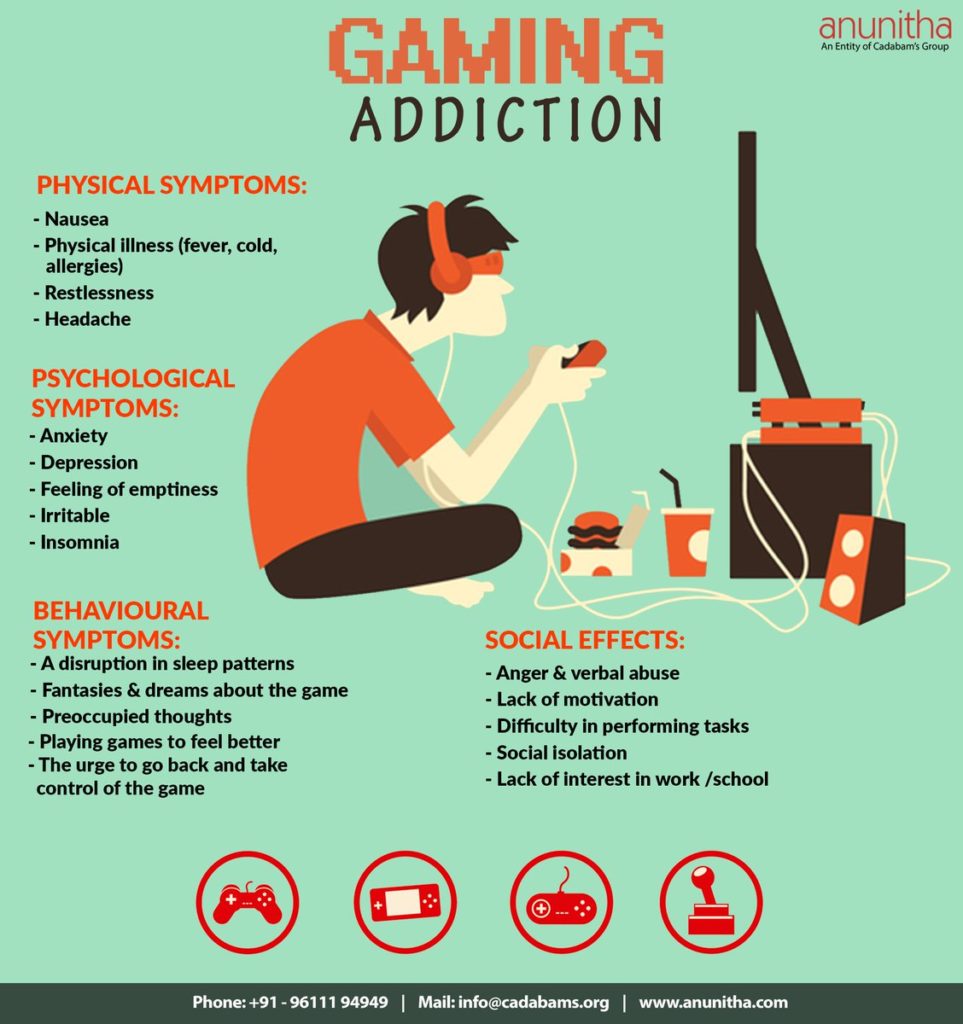
Introduction
Definition of Gaming Addiction
Gaming addiction is that delightful little predicament where individuals find themselves engulfed in virtual worlds, losing track of time, responsibilities, and sometimes even their sense of reality. It’s not just about loving games—it’s about compulsively playing them to the detriment of other life aspects. Think of it as that friend who insists they’re only playing “for a few minutes” but ends up missing dinner!
Prevalence of Gaming Addiction
Surprisingly, gaming addiction has become quite the pressing concern:
- Statistics indicate that approximately 8.5% of gamers exhibit signs of addiction.
- The demographic mix reveals that it can affect anyone, but younger gamers are particularly vulnerable.
So, next time you notice a friend glued to their screen, it might be time to check if they’ve crossed into the “addiction” territory!
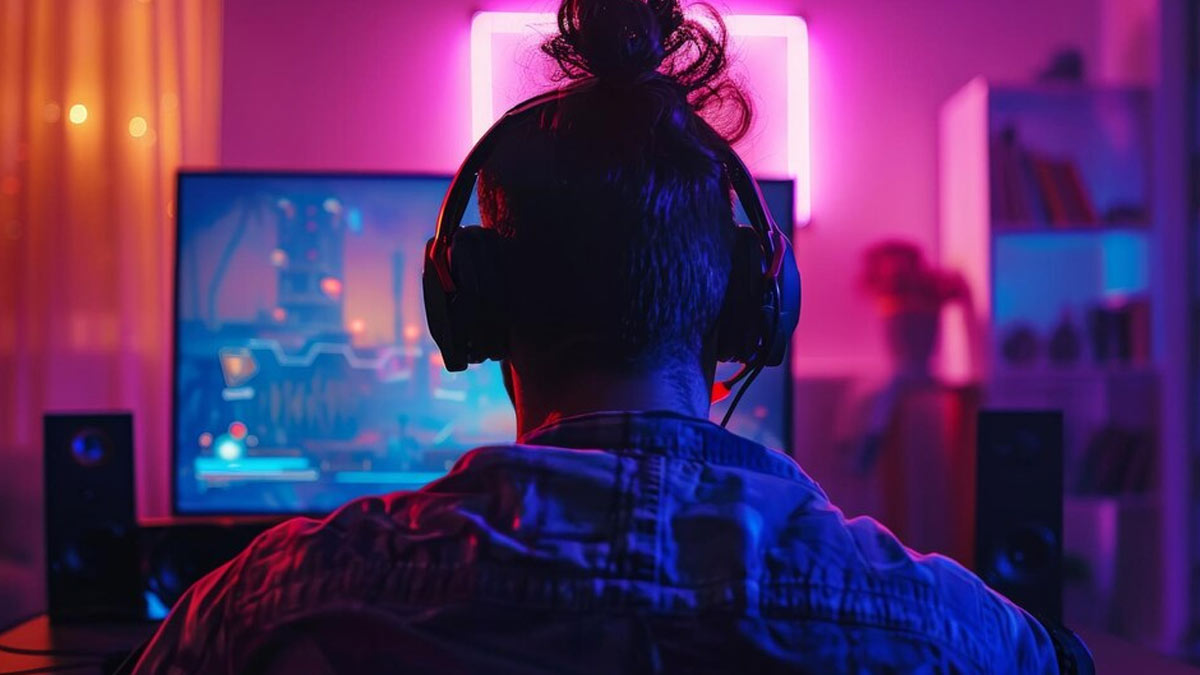
Psychology Behind Gaming Addiction
Dopamine and Reward Circuit
Ah, dopamine—the sweet little chemical that promises rewards! Every time you score a win, unlock a new level, or receive a shiny loot drop, your brain releases this feel-good neurotransmitter, reinforcing the behavior. It’s like the universe just gave you a gold star. But, let’s face it, constantly chasing that high can spiral into obsession.
Escapism and Coping Mechanisms
For many, gaming serves as an oasis from real-world challenges. Instead of tackling life’s stressors, we dive head-first into pixelated adventures, blissfully avoiding responsibilities.
- It’s comforting to escape from reality.
- Helps to manage anxiety and depression.
Social Connection and Identity
And let’s not overlook the social aspect! Multiplayer games offer a unique sense of belonging. Friends made online can feel like family, as gamers bond over shared experiences, sometimes more deeply than in reality. Just remember—while gaming can build connections, it’s crucial to maintain a balance!

Risk Factors for Gaming Addiction
Psychological Factors
Now let’s dive into what makes gaming addiction tick. Psychological issues like anxiety, depression, or low self-esteem often drive individuals to seek solace in gaming. It’s a temporary fix, like eating ice cream during a breakup—comforting, but ultimately not a solution!
Environmental Triggers
Then we have environmental triggers. Ever noticed a friend glued to their screen during a dull family gathering? No surprise there! Factors include:
- Loneliness: Gaming can feel like a real escape when socializing feels overwhelming.
- Stressful Home Environment: A chaotic home life can push individuals into virtual realms where they feel in control.
Genetic Predispositions
Last but not least, let’s talk genetics. Some individuals may be more predisposed to addictive behaviors due to their genetic makeup. If you have a family history of addiction—be it gaming or otherwise—this could raise your risk. It’s a perfect storm of nature and nurture!

Impact of Gaming Addiction
Mental Health Consequences
So, what are the knock-on effects of gaming addiction? Let’s not sugarcoat it—mental health can take a nosedive. Excessive gaming often coincides with increased anxiety and depression. Imagine escaping through your favorite game, only to find reality crashing in like an unwanted guest at a party.
Physical Health Implications
Then there’s the physical toll. Who knew marathon gaming could lead to:
- Poor Posture: As we hunch over controllers, our backs become a sad canvas of discomfort.
- Sleep Disorders: Late-night gaming sessions rob us of precious Z’s, leading to a zombie-like existence by day.
Social and Behavioral Effects
Socially, gaming addicts might find themselves withdrawing from friends and family. Gone are the days of spontaneous outings, replaced by virtual conquests. It’s a slippery slope that can lead to isolation and strained relationships. Finding balance is critical—even if it means stepping away from the screen occasionally!

Treatment and Prevention Strategies
Cognitive-Behavioral Therapy
Alright, let’s tackle how to pull back from the gaming abyss! First up, Cognitive-Behavioral Therapy (CBT). It’s like a mental tune-up—helping individuals identify and change unhealthy thought patterns. Picture sitting down with a professional, unraveling the tangled web of gaming habits, and emerging with a clearer mind!
Family Interventions
Family interventions can also make a world of difference. Sometimes, a gentle nudge from loved ones can serve as the wake-up call needed. Family discussions can:
- Set clearer boundaries.
- Foster understanding and support.
Setting Limits and Establishing Healthy Habits
Finally, establishing healthy habits is essential. You don’t have to quit gaming cold turkey! Instead:
- Set time limits for play.
- Incorporate regular breaks and physical activity.
These strategies create a balance between virtual escapism and real-world engagement. Remember, it’s all about moderation!
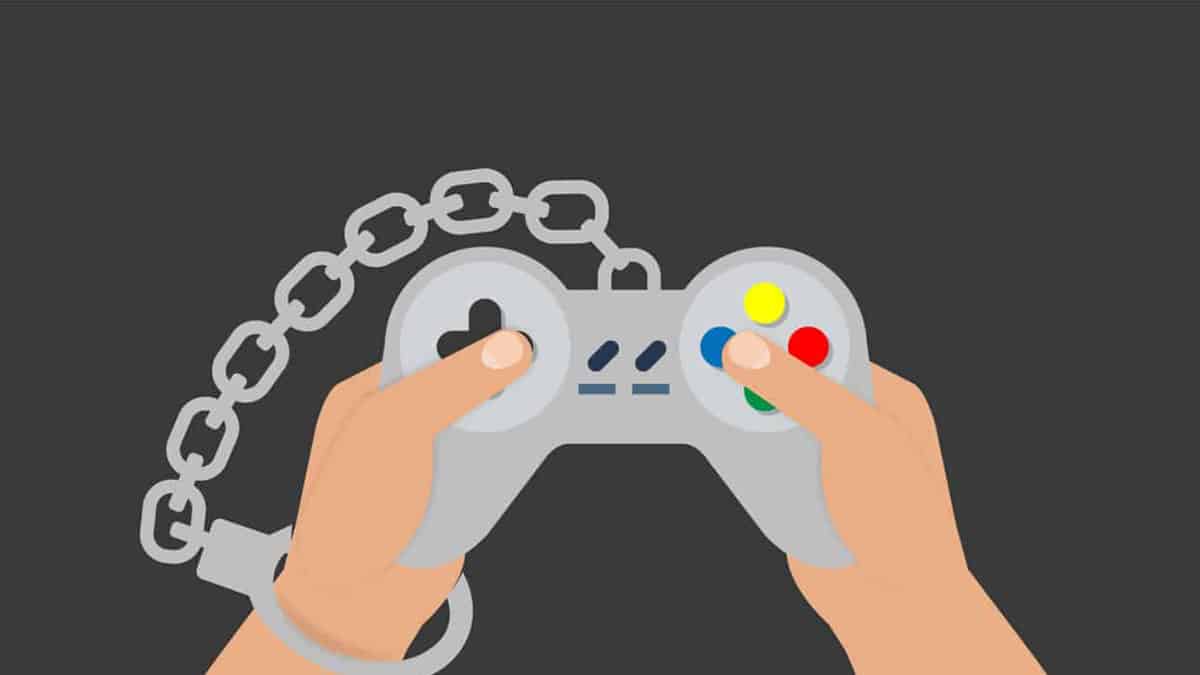
The Role of Game Design in Addiction
Skinner Box Mechanics
Now, let’s shine a light on game design—because apparently, there are crafty masterminds behind the scenes! Have you ever found yourself playing the same level over and over, all while wondering why? Welcome to the “Skinner Box” mechanics. This brilliant yet sneaky approach uses rewards and reinforcements to keep players hooked. It’s like a digital candy jar that never runs out!
Incentivization and Monetization Strategies
Next up are incentivization and monetization strategies. Developers cleverly sprinkle in little perks—daily challenges and loot boxes—making gamers more inclined to return for “just one more round.” Here’s what to look out for:
- Limited-time offers: FOMO (Fear of Missing Out) is real!
- In-game purchases: The tempting ease of spending real money keeps wallets flying open.
Ethical Considerations
This leads us to ethical considerations. As the lines blur between entertainment and exploitation, it’s crucial to discuss responsibility. Game designers must tread carefully to ensure enjoyment doesn’t morph into addiction. Balancing engagement with ethical practices is key—because nobody wants to be the villain in their own life!
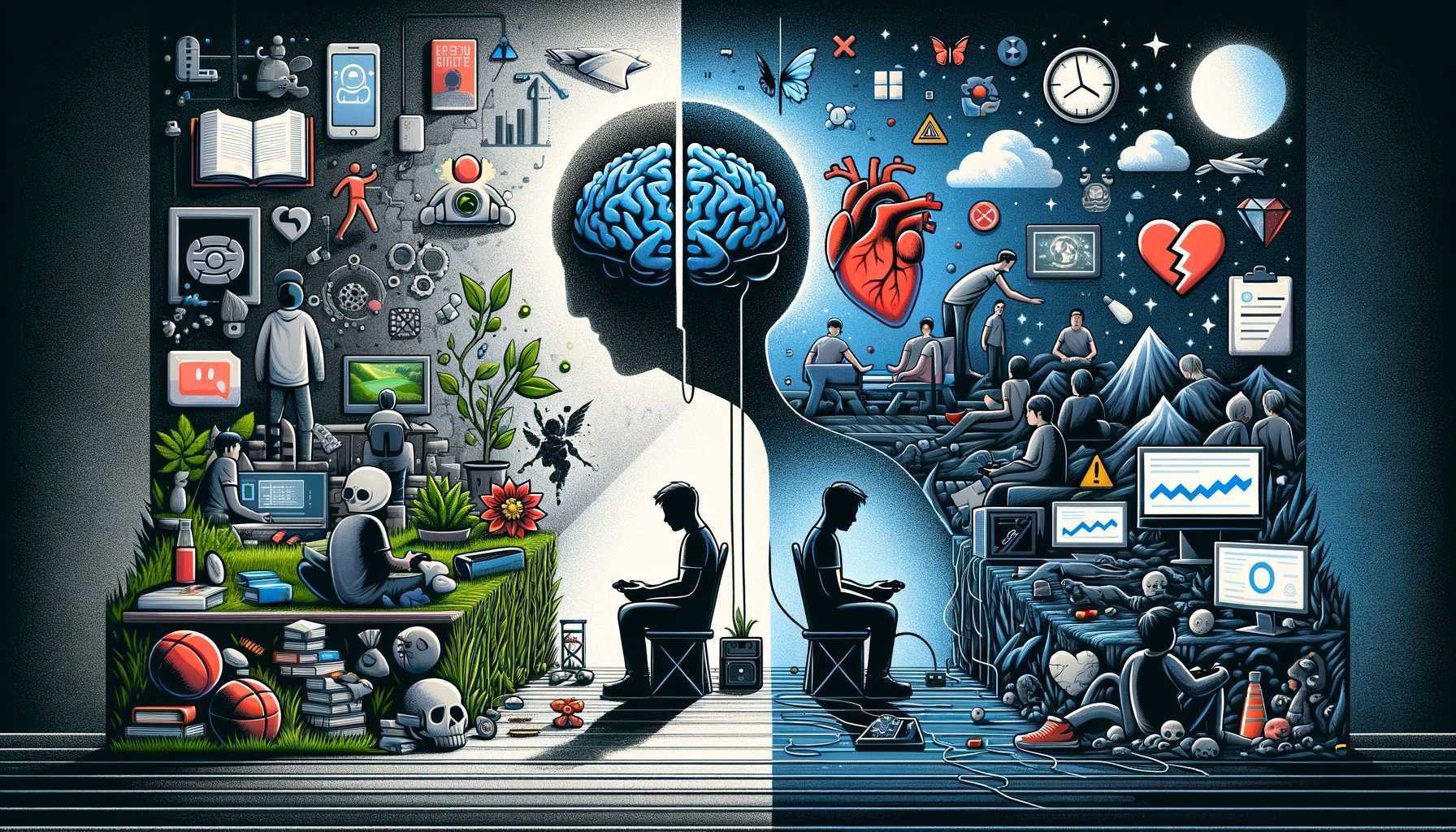
The Debate on Gaming Addiction
Is Gaming Addiction a Valid Diagnosis?
Now, let’s dive into the hot topic of whether gaming addiction is even a legitimate diagnosis. While the World Health Organization has classified “gaming disorder,” opinions are split. Some argue it’s just a trendy label for a complex issue, while others assert it deserves serious attention. It’s like debating whether pineapple belongs on pizza—everyone has strong feelings!
Perspectives from the Gaming Industry
The gaming industry, naturally, aims to brush off the term “addiction” as damaging. Many developers advocate for responsible gaming and create features that encourage breaks. After all, nobody wants to be known as the puppet master of virtual addiction!
Balancing Enjoyment and Moderation
Ultimately, it boils down to striking a balance. Gamers can still enjoy their favorite pastime without letting it hijack their lives. Moderation is key, like knowing when to step away from the screen and engage with the real world—because there’s a vibrant life waiting beyond that glowing monitor!

Moving Forward: Promoting Responsible Gaming
Education and Awareness Campaigns
As we wade through the waters of gaming addiction, it’s crucial to promote responsible gaming. First up: education! Awareness campaigns can shine a light on the risks and provide tools for gamers to recognize their limits. Imagine posters in gaming lounges reminding players to take breaks—like an encouraging nudge from a friend!
Supportive Communities and Resources
Building supportive communities is also essential. Online forums and local meetups can offer safe spaces for sharing experiences. These communities can foster connection and understanding and sometimes even help each other maintain balance.
Encouraging Balanced Lifestyles
Lastly, let’s encourage balanced lifestyles. Gamers can integrate hobbies, exercise, and social activities into their routines. After all, there’s a world outside the screen that’s just as exciting! Balance isn’t just a buzzword; it’s the pathway to enjoyment without addiction. Game on, responsibly!

Conclusion
Recap of Key Points
As we wrap this up, let’s revisit the cornerstone concepts we’ve tackled. Gaming addiction is real and often fueled by psychological factors, crafty game design, and various risk elements. We’ve discussed mental health implications, treatment strategies like CBT, and the gaming industry’s perspective on addiction.
Looking Towards the Future
So, what’s next? The future is bright, but only if we champion responsible gaming. With education and support, we can cultivate healthier habits without sacrificing fun. Think of it as leveling up in life—by promoting awareness and balance, we ensure everyone can enjoy gaming while prioritizing their well-being. Now that’s a win-win situation! Game responsibly, folks!
